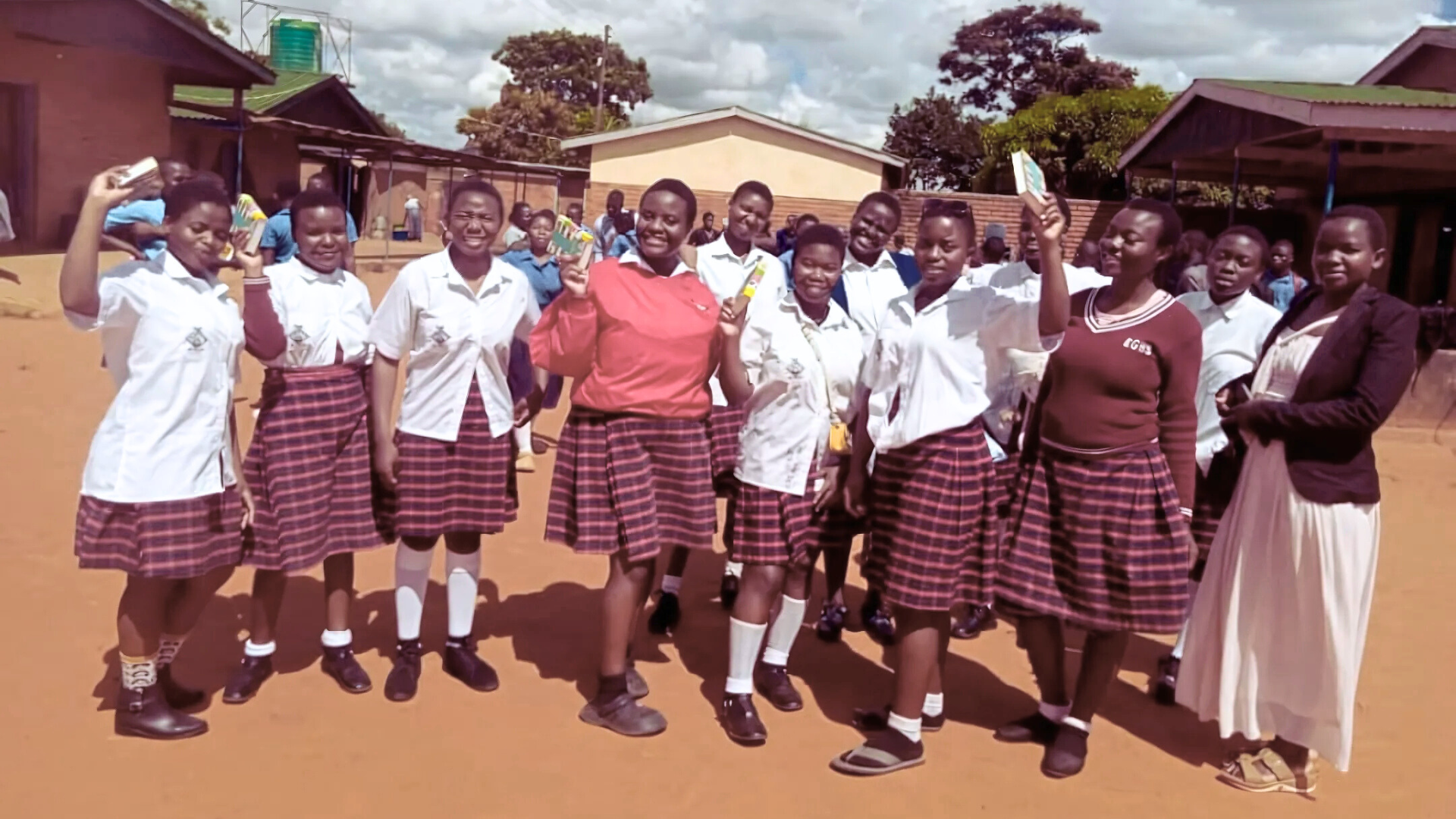
STARTING EARLY
Five Good Reasons for High School Ministry
What comes to your mind when you hear the word students? Where are they? What are they doing? How old are they?
In some cultures and languages, the word “student” is reserved for a young adult at university or college. In others, it can also refer to a child or young person at school.
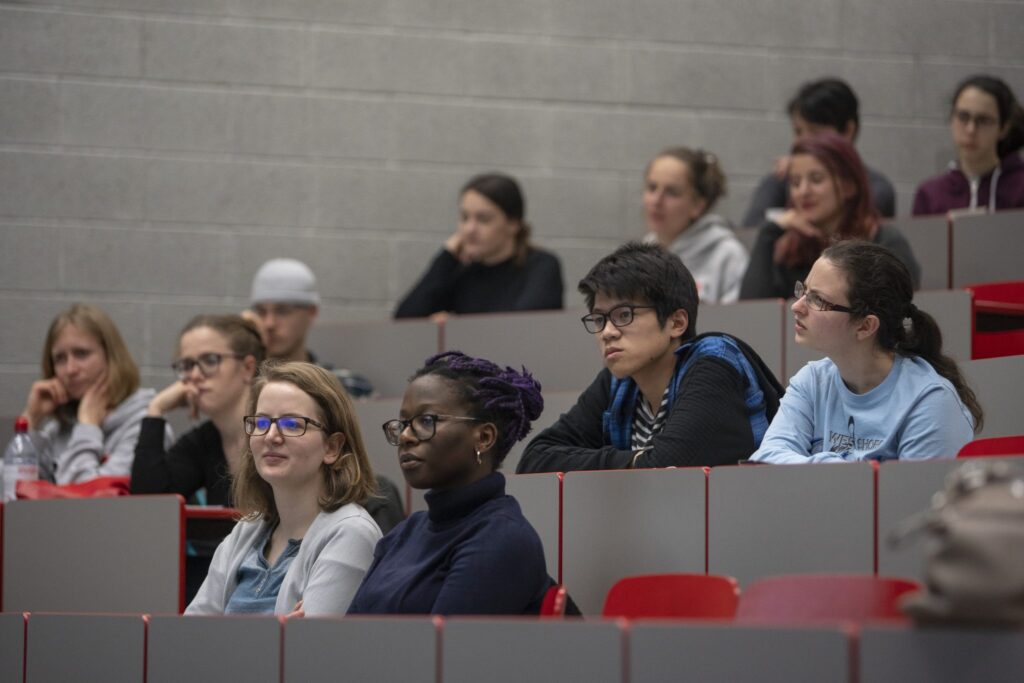
At its heart and throughout its history, IFES has focused on pioneering and supporting student witness in the world’s universities and colleges.
However, many of our national movements do not confine ministry to tertiary-level students. Their mission also extends into secondary schools.
In this Conexión blog, we ask why.
Why are movements whose purpose is to reach and equip university students also ministering to school students?
Within IFES, and elsewhere, this is often called “high school ministry”, although the use and meaning of “high school” differs from country to country – as do the ages at which young people attend it. In this blog, we’ll use it to refer to the stage of schooling that precedes university education.
We talked to three IFES movements with a thriving high school ministry – Inter-Varsity Christian Fellowship Canada, Perkantas (Indonesia), and Student Christian Organisation of Malawi. Their reflections, along with information and observations from other movements, provide at least five good reasons for this ministry and offer useful insights into running it.
1: NO TIME TO WASTE
The year was 1979. Indonesia was suffering from widespread juvenile delinquency. Fights between schools and substance abuse were common. In Surabaya, Mrs Lea Santoso, a staff worker for the local IFES movement Perkantas – formed just eight years prior – felt a deep concern for these youngsters.
So, Lea invited a few high school students from her church to study the Bible together. Along with her husband Imam, they nurtured faith, helping them choose Christ’s way rather than the harmful options all around.
When the students started university, they continued to follow Jesus. And they impressed others with the quality of their character and leadership. Seeing the impact that high school ministry could have, Mr and Mrs Santoso set about expanding this arm of Perkantas. Today, over 1,600 small groups operate across 40 cities.
Rabea Merry, current High School Ministry Coordinator for Perkantas, says, “schools often express appreciation for the visible Christlike character and academic excellence of our students. And parents support their children’s involvement because they see positive changes in behaviour and performance.”
Fifty years on, the pressures facing young people in Indonesia are different. But they are still impressionable – and responsive. The sense of urgency to reach them remains.
(c) Perkantas

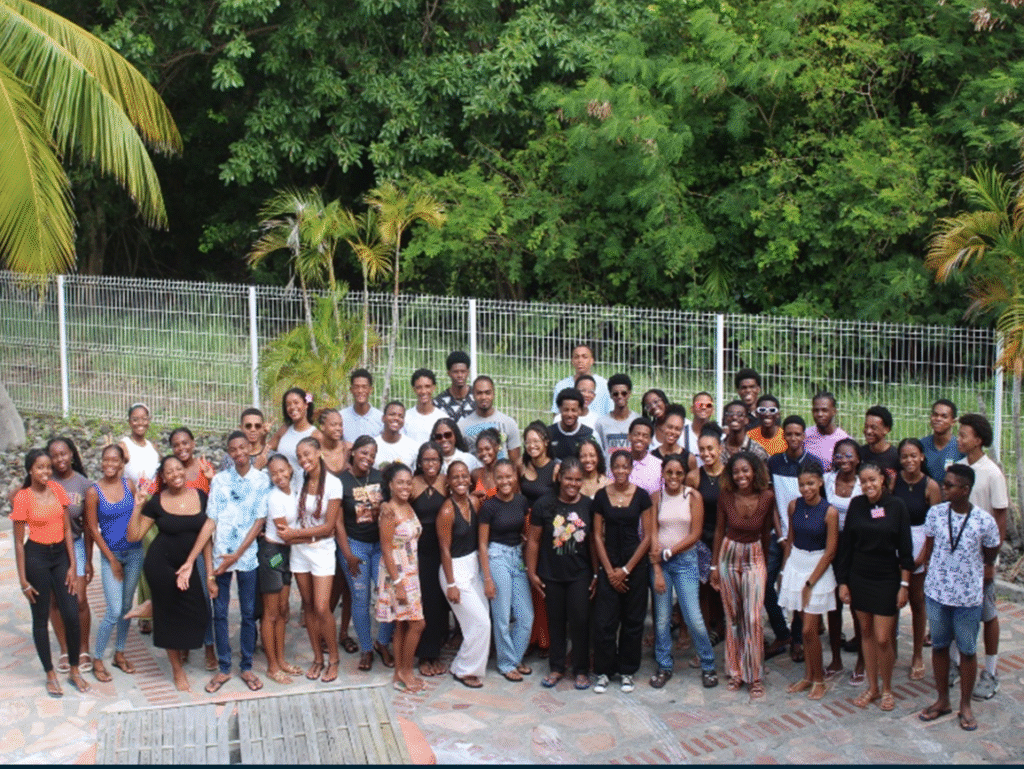
Last year, an IFES camp for the French-speaking Caribbean included students from both university and high school.
The same impetus was evident. The program focused on how to resist temptation because of the widespread pressures of drugs, sex, alcohol, and conforming to social trends.
In Canada, Vanessa Kordupel, Director of Youth and High School Ministry in IVCF, has noticed that churches are deeply worried about her country’s “changing landscape”, with its increasingly secular and digital environment. She sees this as a pressing opportunity: “They’re an amazing generation – they just need equipping!”.
2: NO-ONE MISSES OUT
Campus ministry to high school students isn’t solely motivated by the idea of reaching students “before university” because many of them will not go on to further study. Although the number of students in tertiary education has doubled globally in the last 20 years, countless influential young people will never go to university. High school ministry represents a chance to reach them.
In Germany, around 30% of 20-24 years olds choose a non-tertiary vocational qualification. Since the 1960s, the local IFES movement, SMD, has been accompanying and supporting student Bible study groups (SBKs) in schools, aiming to “give God space in everyday school life”. They currently work with around 200 groups and provide resources for starting a new SBK.

(c) SMD
Typically, groups will read the Bible and pray together, discuss difficult questions they’re facing, stand up for justice, and pass on God’s love in practical ways. Even though some of these Christian students may not go on to experience the way in which SMD is “engaging the university”, they will have learned how to think and live in a consistently Christian way.

In Canada, annual camps have been a core component of IVCF ministry since Howard Guinness founded the movement almost 100 years ago.
Today, such ministry is still going strong. Last year, over 7,700 children and teens attended one of nine camps across the country.
The camps’ importance is conveyed by a story from Anne Douglas, Associate Director of Camps:
“When I went to say goodnight to some girls, their cabin leader told me that four of them had decided to follow Jesus that evening. I stayed for a moment to pray with them. Their requests were heart-wrenching, particularly the number of their parents mired in addiction.”
3: A TASTE OF CAMPUS WITNESS
Another good reason for reaching high schoolers is that they gain a flavour of campus ministry. As they explore big issues, engage with Scripture, and enjoy fellowship with peers, they taste the essential ingredients of an IFES university group.
This strategy has been particularly effective for movements that do not yet have any designated ministry in schools.
For example, BSFB Bangladesh has seen much fruit from including students aged 14+ in their annual camps. Savithri, Regional Secretary for South Asia, describes them as a “feeder for university ministry”.


This is also true where groups exist in high schools. Vanessa (IVCF Canada) notes how Howard Guiness’ pioneering vision was that high school ministry would form a vital bridge between camps and campuses.
She also stresses how their work in schools naturally leads into university ministry because the “students reaching students” ethos is the same. IVCF high school ministry is supported by staff, volunteers, and youth pastors, but their role is only ever to equip students to lead. Staff may offer one-to-one discipleship conversations over a bubble tea or run leadership training on sharing faith and issues of identity. But it’s the teenagers who are leading lunchtime Bible studies and Alpha groups.
Students are also the ones to plan and execute “service projects” in the school community. In one, they put positive messages on Post-it notes and stuck them around the toilet area during exam season. Student leaders might also approach a school principal to ask for permission to run a group.
In SCOM Malawi, General Secretary Ellen Napala, observes the same kind of initiative:
“It’s amazing to see that many branches of our school ministry are opened by students. When a student who has been part of SCOM transfers to a school without a group, they liaise with school management and start one – it’s only afterwards that our staff and volunteers find out!”
4: READY-MADE LEADERS
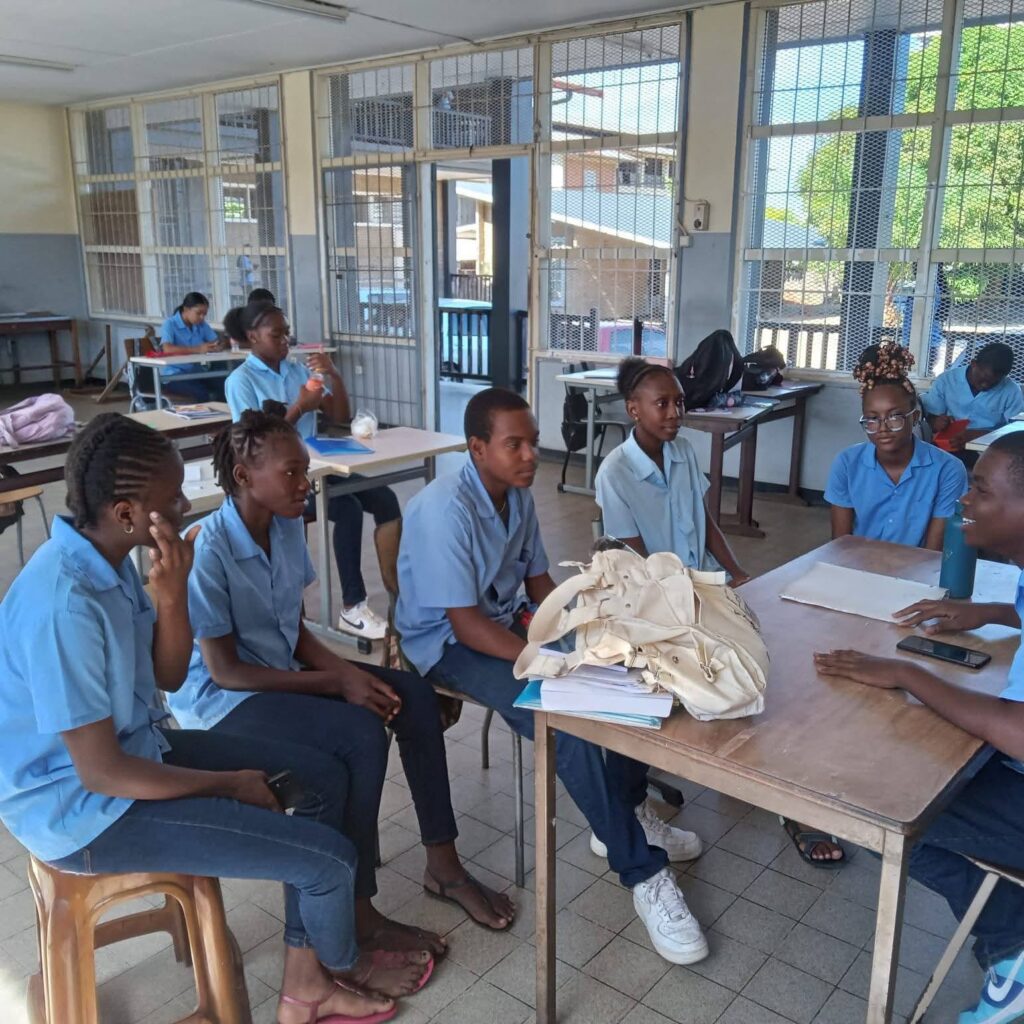
With this level of hands-on involvement, by the time students finish school and enter university, they’re ready to lead on campus.
Vanessa (IVCF Canada) sees such students as “a gift” to campus staff – “from Day 1, they are excited by the vision and trained for ministry, ready to lead interactive Bible studies, hold gospel conversations, and meet challenges with courage and resilience.”
Rabea (Perkantas Indonesia) agrees: “We believe that high school ministry forms a foundation for university ministry. Reaching students early allows for stronger discipleship and the development of godly leadership. We see many who were discipled in high school continue as spiritual leaders on campus and in local churches.”
In Malawi, Ellen adds that SCOM has the backing of churches, the Ministry of Education, and other key figures in society because its school ministry has raised godly leaders for over 60 years: “The impact of SCOM cannot be ignored because most people who are doing well or in key positions today attribute their success to their involvement with SCOM from their high school days.”
The benefit of an IFES movement’s high school ministry is not only felt “at home”. In many cases it reaches beyond borders. SCF Mauritius say that around half of the school leavers on their island go to study abroad, becoming “a gift” to campus staff in a sister movement. Indeed, GBUC, the French-speaking movement in Canada, as well as movements in North Africa, frequently receive international students whose involvement at high school has given them a heart for IFES ministry.
5: FULLER ENGAGEMENT
When you visit some IFES movements’ websites, a continuous, integrated whole is immediately clear. For example, both IVCF Canada and SMD Germany have designated sections for high school students, university students, and graduates (young professionals).
Ellen (SCOM Malawi) describes how three interconnected parts facilitate a deeper engagement with the ministry – and fuller support in following years:
“With more time to disciple and mentor students through high school and university, the students cultivate a stronger relationship with the national movement. It’s easier to recruit graduates as volunteers (“Associates”) because they have seen the benefits of this ministry. And getting them to support the ministry is easier because they saw how others invested in them.”
She also says that involving university students in high school ministry develops relationships so that high school students already have mentors to look to when they enter university. “It’s very unlikely that they wouldn’t join the fellowship at university – they’re already hooked!”
Moreover, high school ministry in Malawi is largely run by SCOM graduates. They are the ones that organize most outreach activities and mobilize resources for conferences. Of this year’s 41 conferences countrywide, 40 were organized and resourced by graduates, with support from other partners. Associates also visit schools to provide encouragement, guidance, and training. Without this kind of mobilisation, it would be impossible for SCOM to reach its 350,000 high school students across 1,700 schools.
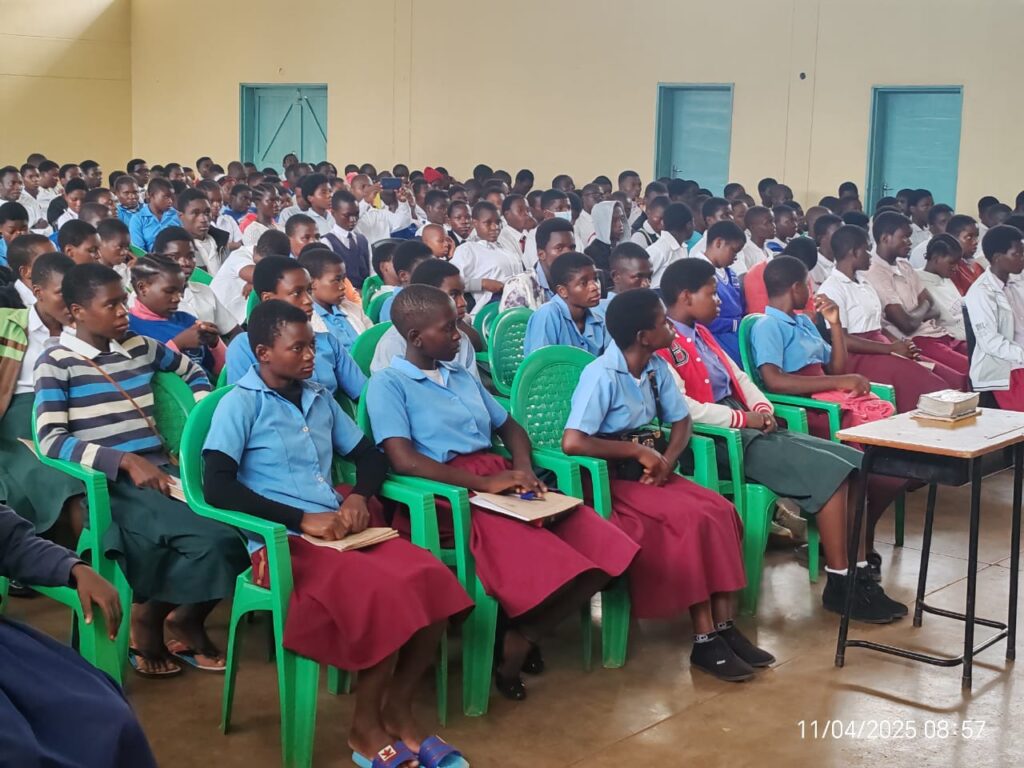
Vanessa (IVCF Canada) also observes a resourcing and engagement that travels in the other direction. Her years of ministry have convinced her that high school students are like “cultural prophets” – they represent what’s coming to the university in four to five years’ time. She believes that staff who mainly serve on university campuses would enhance their ministry by giving 5-10 hours a term to high school ministry.
GROWING INTEREST
With at least these five good reasons for high school ministry, IFES is aiming to better connect movements that are running it (around 60) and those who are looking to start.
In June, more than 50 high school ministry staff from seven movements in the East Asia region joined an online webinar called “Bridging the Gaps – Understanding and Discipling the High Schoolers”. Staff from CEF Taiwan and IVCF Philippines shared specific challenges and opportunities they’ve encountered in reaching this generation (“let them lead, let them explore, even if it feels messy or slow!”).
Globally, the IFES leadership recently welcomed proposals for a high school ministry working group, a community for sharing ideas, and a resource library. The diversity of experiences and contexts across a truly international fellowship will allow for a rich exchange of best practice.
Sometimes, sharing of expertise even comes full circle. Vanessa (IVCF Canada) mentioned how helpful it was to speak with staff from Jamaica at IFES World Assembly in 2023. The school work there was pioneered by a Canadian staff worker, Cathy Nicoll in 1948. She helped start groups in six schools, leading to the formation of the Inter School Christian Fellowship (ISCF), a branch of what is now SCF/SU Jamaica. This legacy spread across the Caribbean. Today, many movements carry the “IS/IVCF” label – Inter-School and Inter-Varsity Christian Fellowship.
“It was amazing to hear what they’re doing – and encouraging to think that as a movement we can now learn from them!”, Vanessa says.
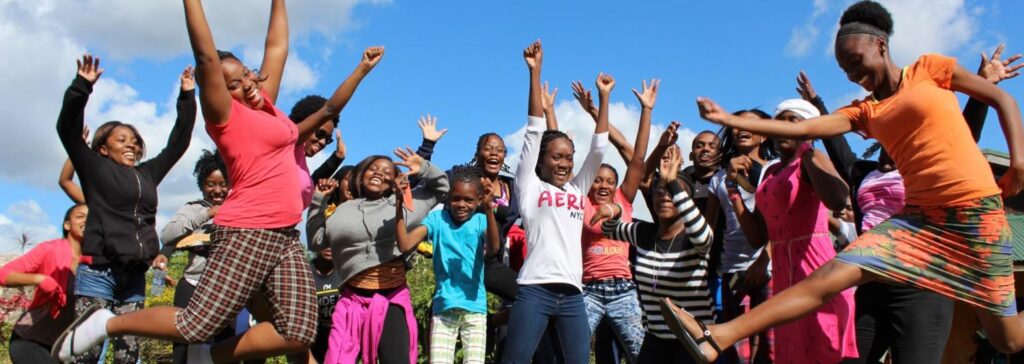
THE WAY AHEAD
Each movement, of course, ministers in its own context. The stories above illustrate how IFES movements’ high school ministry has usually been a wise and strategic response to local need or opportunity. In some countries, it’s not always necessary or appropriate to start groups in schools since other organisations are present. But fruitful partnerships can be explored.
One way or another, this age group can benefit from the student-led, outward-focused, biblically engaging, leader-raising ministry that IFES offers. And since high school students are more globally connected and aware than ever, the “no time to waste” reason feels particularly pertinent:
“This ministry allows IFES movements to be present in the lives of students at a very critical stage of their lives – when they are searching and trying to discover who they are and what they want to become. This is the time to introduce Christ and his kingdom values to them!” Ellen (SCOM Malawi).
Are you involved in high school ministry or hoping to start it?
We’d love to pray for you!
Tell us how we can by sending in a World Student Day prayer request. Then, thousands of people all around the world will pray for you on 16 October.



